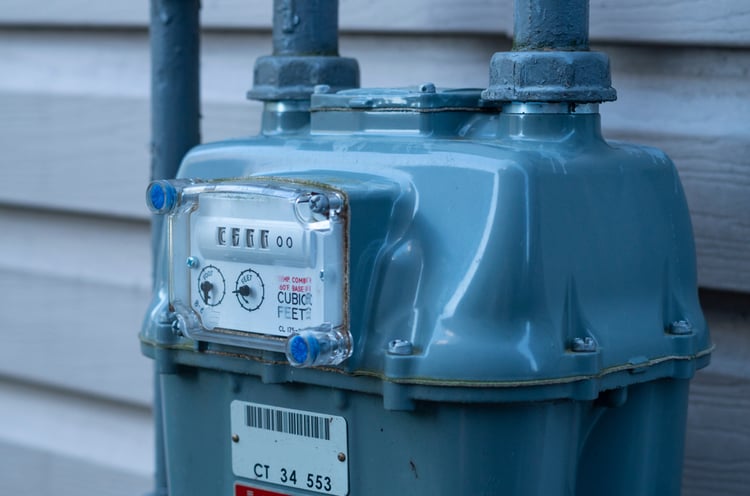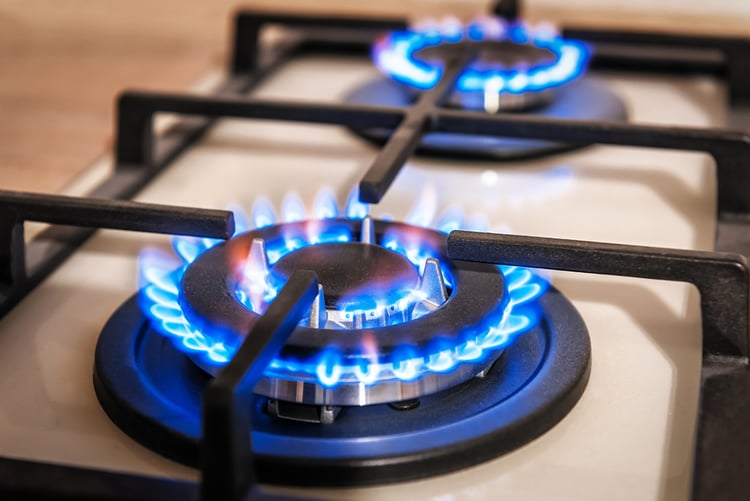New York City Bans Natural Gas Heating in New Buildings

New York City has been characterized by its aggressive stance towards climate change, and Introduction No. 2317-A is yet another example of this. Signed on December 22, this law bans gas-fired heating in new constructions and major renovations. NYC has already applied emission limits for all buildings over 25,000 sf with Local Law 97 of 2019.
Get a fully electric and energy efficient heating design for your next construction project.
Specifically, Int. No. 2317-A prohibits space heating and hot water systems that depend on combustion, if they burn a fossil fuel that releases more than 25 kg of CO2 per million BTU. This leaves natural gas, #2 fuel oil and #4 fuel oil out of the picture, since they have the following emission factors:
- Natural gas = 53.11 kg CO2-eq per million BTU
- #2 fuel oil = 74.21 kg CO2-eq per million BTU
- #4 fuel oil = 75.29 kg CO2-eq per million BTU
While this measure has environmental benefits, it poses a technical challenge for developers who are currently planning projects in NYC. Local electricity prices are among the highest in the country, and electric heating systems must be designed as efficiently as possible to compensate for this. Having an airtight and well insulated building envelope also helps, since it minimizes heat loss during winter.
When Does the Natural Gas Ban Come Into Effect in New York City?

Intro. 2317-A is effective immediately, but its requirements are being applied over time. The date on which natural gas is banned for new buildings depends on their size. Developers will still be allowed to use gas-fired heating if their projects are submitted before the following deadlines:
- If the building is seven stories or taller, construction documents must be submitted for approval by July 1, 2027.
- If the building is less than seven stories tall, construction documents must be submitted by December 31, 2023.
Any new construction or major renovation that is submitted after these dates must use fully-electric space heating and hot water systems. After the dates provided above, the NYC Department of Buildings will reject all applications that don’t meet the new requirements. Fossil fuels with emissions over 25 kg of CO2 per million BTU will still be allowed in NYC buildings, but only when their usage meets three conditions:
- The combustion device is not connected to the building’s gas supply line or fuel oil piping.
- The combustion device operates intermittently.
- Fossil fuel combustion is not used for space heating or hot water.
Intro. 2317 has also added penalties for not following the new fossil fuel limitations in new buildings, which will be found in Section 24-178 of the NYC Administrative Code. The applicable penalty for building owners will range from $400 to $4,000 per violation.
Which Buildings Are Exempt From the Intro. 2317 Natural Gas Ban?

Keep in mind that Intro. 2317 is restricting the use of fossil fuels in space heating and hot water applications, but they are not being banned completely. The requirement only applies for new constructions and major renovations, which means that combustion heating systems are still allowed in existing buildings. However, landlords must be aware that Local Law 97 of 2019 applies emission limits on all buildings over 25,000 sf, starting from 2024.
Intro. 2317 describes some special cases where combustion-based heating is allowed, but the submission of construction documents is subject to deadlines:
- Group R-3 constructions that rely on fossil fuel combustion for hot water systems, submitted by July 1, 2027.
- Buildings under seven stories, where at least 50% of dwellings are subject to an affordable housing agreement, submitted by December 31, 2025.
- Buildings with seven stories or more, where at least 50% of dwellings are affordable housing units, submitted by December 31, 2027.
- Applications filed by the school construction authority, submitted by December 31, 2024.
New buildings are also exempt if they will be used for electricity or steam generation, by a utility company that is subject to the public service commission. The same applies for buildings that will be used to treat food waste or sewage by the department of environmental protection.
Finally, the new law provides a list of specific applications that are exempt from the natural gas ban. These include manufacturing, laboratory operation, laundromats, hospitals, crematoriums, commercial kitchens, and standby or emergency power systems.

Michael Tobias
Michael Tobias, the Founding Principal of NY Engineers, currently leads a team of 150+ MEP/FP engineers and has led over 4,000 projects in the US
Join 15,000+ Fellow Architects and Contractors
Get expert engineering tips straight to your inbox. Subscribe to the NY Engineers Blog below.

